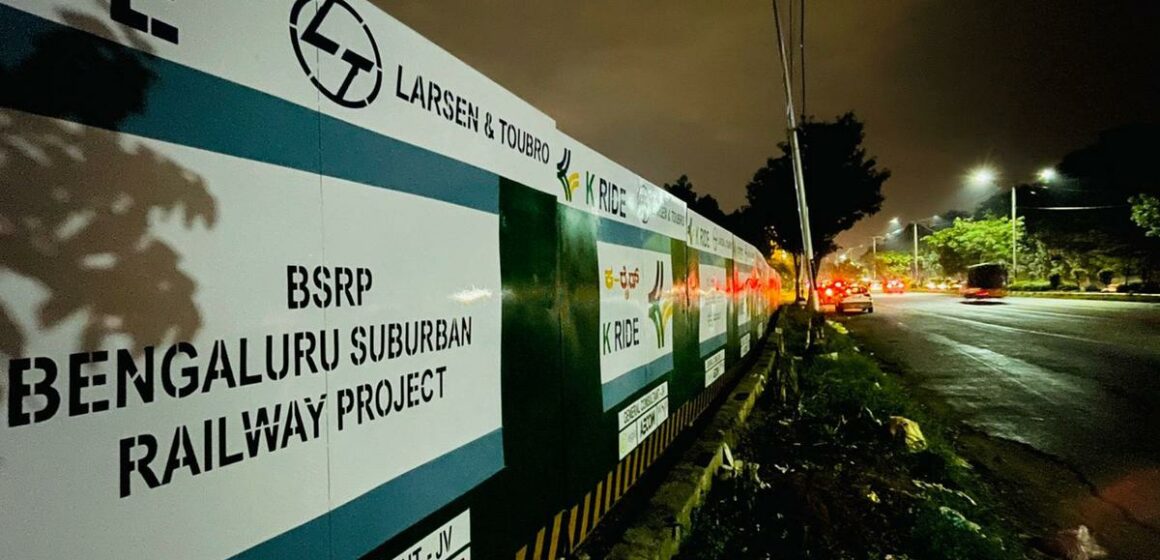The Bengaluru Suburban Rail Project (BSRP) has been envisioned as a transformative solution to the city’s persistent traffic congestion. Intended to provide an efficient public transport alternative, the BSRP aims to connect the key areas and suburbs of Bengaluru, offering a reliable commute option. However, despite its potential benefits, the project has encountered numerous delays and challenges, leaving residents eager for its completion.
BSRP: A Long-Awaited Vision
The BSRP is designed to mitigate Bengaluru’s severe traffic problems, which have worsened due to rapid urbanization and population growth. The project promises to offer a sustainable transportation solution, reducing the strain on the city’s road infrastructure by providing a fast and efficient rail network. This ambitious initiative aims to improve the daily commute for millions of residents, significantly cutting travel time and reducing pollution.
Government Promises and Project Timeline
In June 2022, Prime Minister Narendra Modi promised Bengaluru residents that the long-delayed BSRP would be completed within 40 months. This pledge was a response to the project’s prolonged stagnation, as previous governments had failed to advance it significantly over 40 years. According to the detailed project report (DPR) prepared in 2019, the Rs 15,767 crore project was scheduled for completion by October 2026. However, PM Modi’s promise set a more ambitious target of October 2025.
Current Progress and Setbacks
Despite these assurances, progress on the BSRP has been sluggish. As of now, only about 10 percent of the project has been completed, even though 44 months have passed since the Prime Minister’s commitment. Karnataka Infrastructure Development Minister M B Patil recently stated that all four corridors of the project are expected to be ready by December 2027, further pushing back the expected completion date.
Major Challenges
Several factors have contributed to the delays and slow progress of the BSRP:
- Land Acquisition: Securing the required land has been a significant obstacle, causing delays and escalating project costs.
- Funding Issues: Inconsistent funding and delays in financial disbursements have hampered the project’s advancement.
- Coordination Problems: The project involves multiple government agencies and contractors, and a lack of effective coordination has led to inefficiencies and setbacks.
- Technical and Logistical Difficulties: The complexity and scale of the project have posed significant technical and logistical challenges, further slowing progress.
Efforts to Expedite the Project
To address these issues and accelerate the project’s progress, several measures are being implemented:
- Improved Coordination: Enhanced coordination between various government bodies and private contractors is being pursued to streamline efforts.
- Streamlined Processes: The government is working to simplify land acquisition and approval processes to prevent further delays.
- Increased Funding: Additional financial resources are being allocated to ensure that funding issues do not hinder the project’s progress.
- Enhanced Monitoring: Improved monitoring mechanisms are being put in place to ensure accountability and timely completion of project milestones.
Future Outlook
While the BSRP has the potential to revolutionize Bengaluru’s public transport system, the delays have tempered public optimism. The revised completion target of December 2027 extends the wait significantly. However, with renewed efforts to overcome the existing challenges, there remains hope that the project will eventually deliver the promised benefits to Bengaluru’s commuters.
The Bengaluru Suburban Rail Project represents a critical infrastructure initiative aimed at addressing the city’s severe traffic congestion. Despite grand visions and numerous government promises, the project has faced considerable delays and obstacles. The government’s commitment to expediting the project and addressing the challenges is crucial for its success. As Bengaluru residents continue to deal with daily traffic woes, the completion of the BSRP remains a hopeful prospect for a more efficient and sustainable urban transport system.

